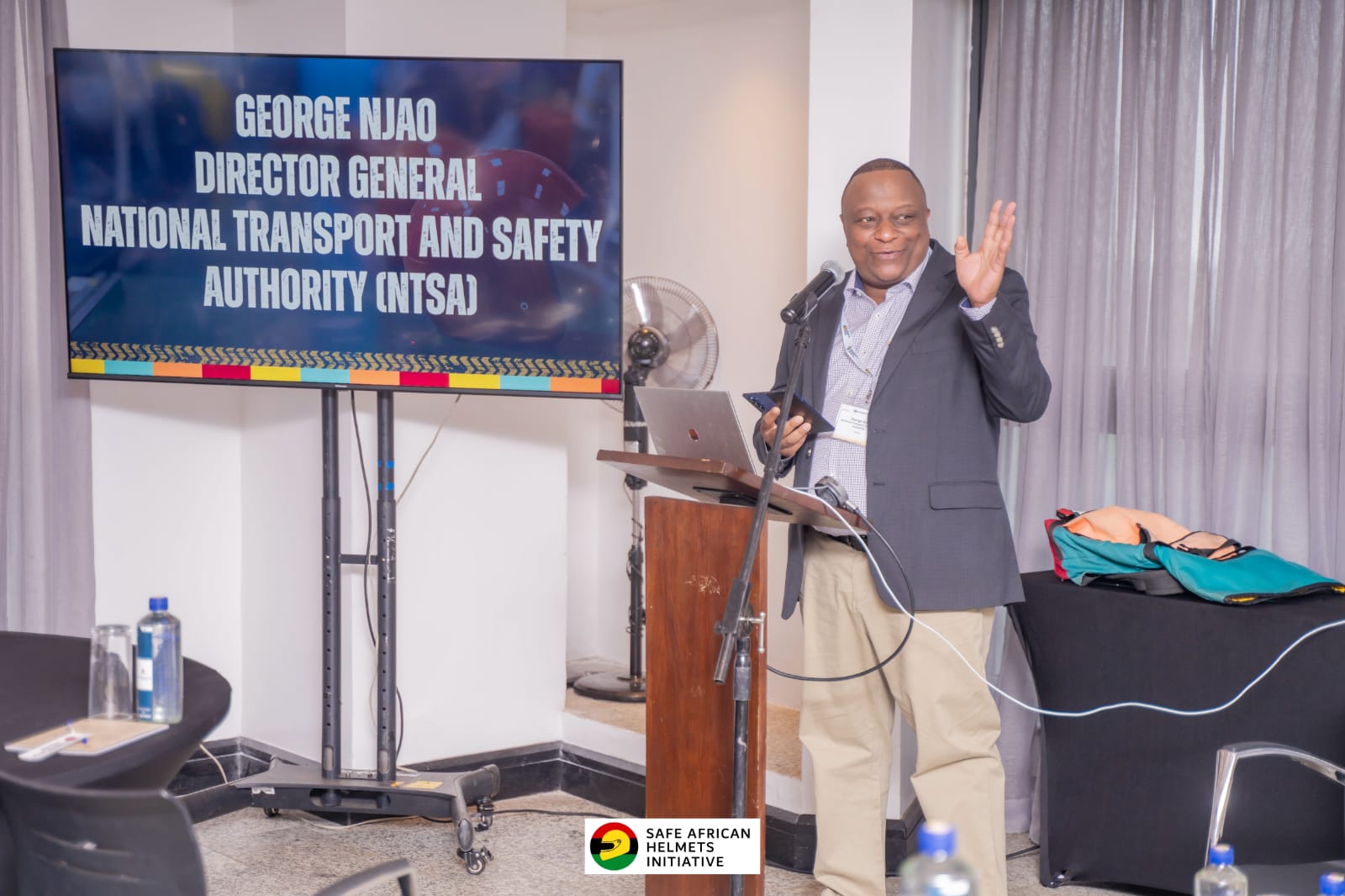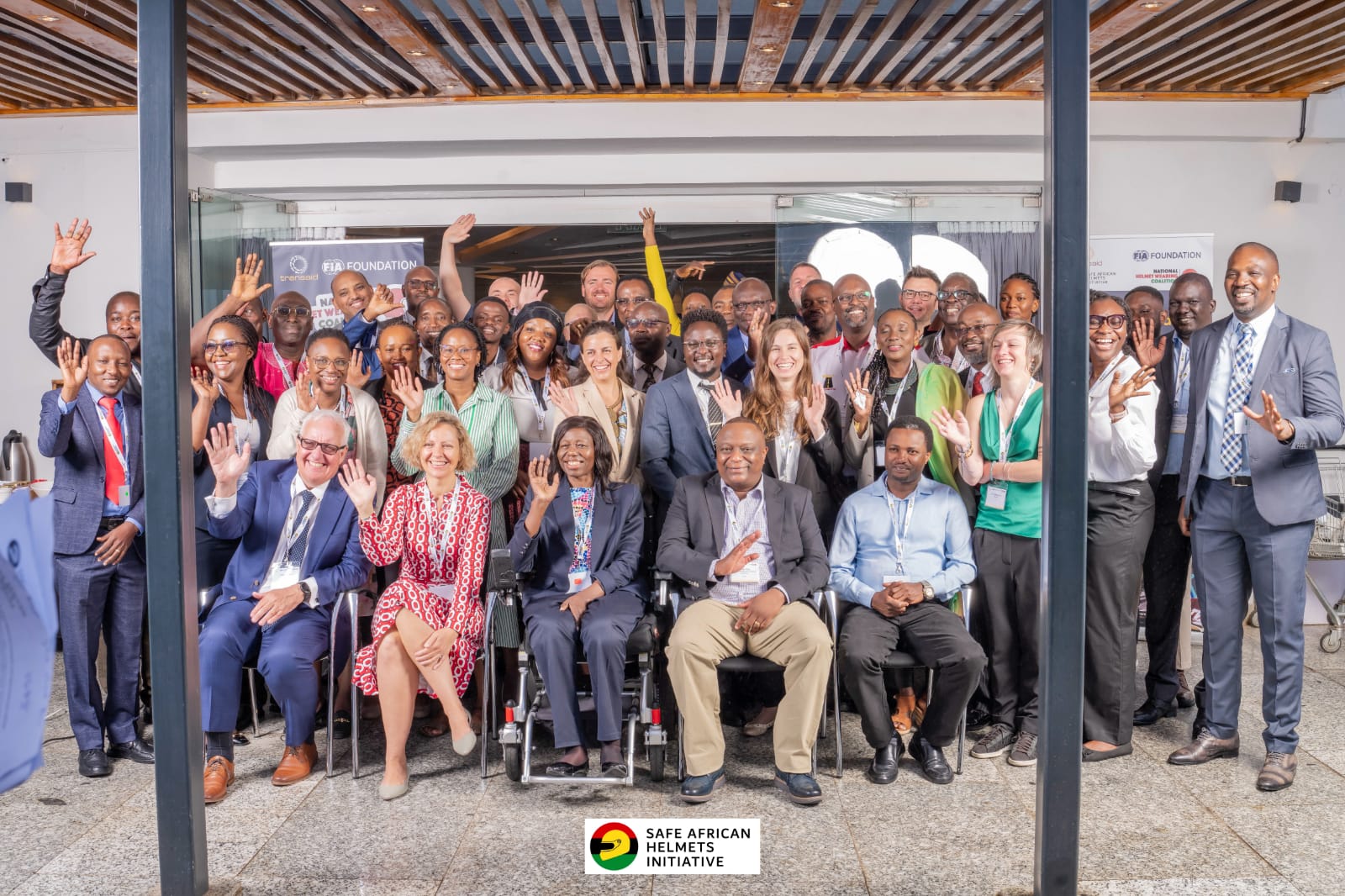 NTSA DG George Njao addressing Safe African Helmets Initiative SAHI summit in Nairobi./HANDOUT
NTSA DG George Njao addressing Safe African Helmets Initiative SAHI summit in Nairobi./HANDOUT
As Kenya faces a sharp rise in motorcycle-related deaths and injuries, Nairobi is hosting the second Safe African Helmets Initiative (SAHI) Summit from July 7–9.
The high-level forum has brought together road safety experts, government officials, private sector players, and civil society leaders from nine African countries, all confronting a shared crisis: too many riders and passengers are dying from preventable head injuries due to unsafe or absent helmet use.
Kenya, with more than 2.4 million boda bodas currently in operation, has seen helmet compliance remain worryingly low.
A recent study found that while 63% of riders wear helmets in Nairobi, only 15% of passengers do so. And according to the National Transport and Safety Authority (NTSA), 431 lives were lost in motorcycle crashes between January and March 2025—an average of five deaths every day.

“We’re working to ensure boda boda riders are properly trained, including collaborating with the National Youth Service to reduce the cost of training. Plans are also underway for Kenya to establish its own helmet testing lab.”
The need for action is urgent. A report by the National Helmet Wearing Coalition identifies head injuries as the leading cause of death among motorcycle crash victims, and enforcement of Kenya’s helmet safety laws remains patchy at best.
“We launched a report last year examining the health costs of motorcycle crashes,” said Sam Clark of Transaid, a UK-based NGO partnering in the summit.
“We found low helmet use to be a major driver of injuries. Nairobi hospitals report head injuries as the most common reason for motorcycle crash admissions.”
The SAHI Summit aims to address deep-rooted barriers to helmet safety, including limited access to certified, affordable helmets, weak enforcement of existing helmet laws—lack of reliable data on motorcycle injuries and deaths-Inadequate public awareness and engagement with the private sector Kenya’s challenge is echoed across the continent.
Countries such as Ghana, Senegal, Benin, and Cameroon—now new members of the SAHI network—are witnessing similar surges in commercial motorcycle use but have yet to catch up in terms of regulation and enforcement.
Globally, motorcycle riders and other powered two- and three-wheeler users account for nearly 25 per cent of the 1.19 million road traffic deaths each year, according to the World Health Organization.
Between 2010 and 2021, the number of such vehicles nearly tripled. The summit also highlights success stories: Rwanda, for instance, has adopted a global helmet standard and opened Africa’s first helmet testing laboratory. Kenya hopes to follow suit.
Key sessions include discussions on boda boda SACCO-led advocacy, media engagement, and the role of insurance firms, ride-hailing companies, and manufacturers in scaling helmet access and awareness.
Organised by the FIA Foundation in partnership with Transaid, the Global Road Safety Partnership, and others, the Nairobi summit builds on momentum from the 4th Global Ministerial Conference on Road Safety, held earlier this year in Marrakech.
That conference concluded with the Marrakech Declaration, calling for coordinated action to integrate helmet standards into national transport strategies.
As discussions continue in Nairobi, one message stands out: the cost of inaction is counted in lives lost.
For African nations that rely on motorcycles to move people and goods, investing in helmet safety is not just smart policy—it is a moral imperative.











